About The National Registry
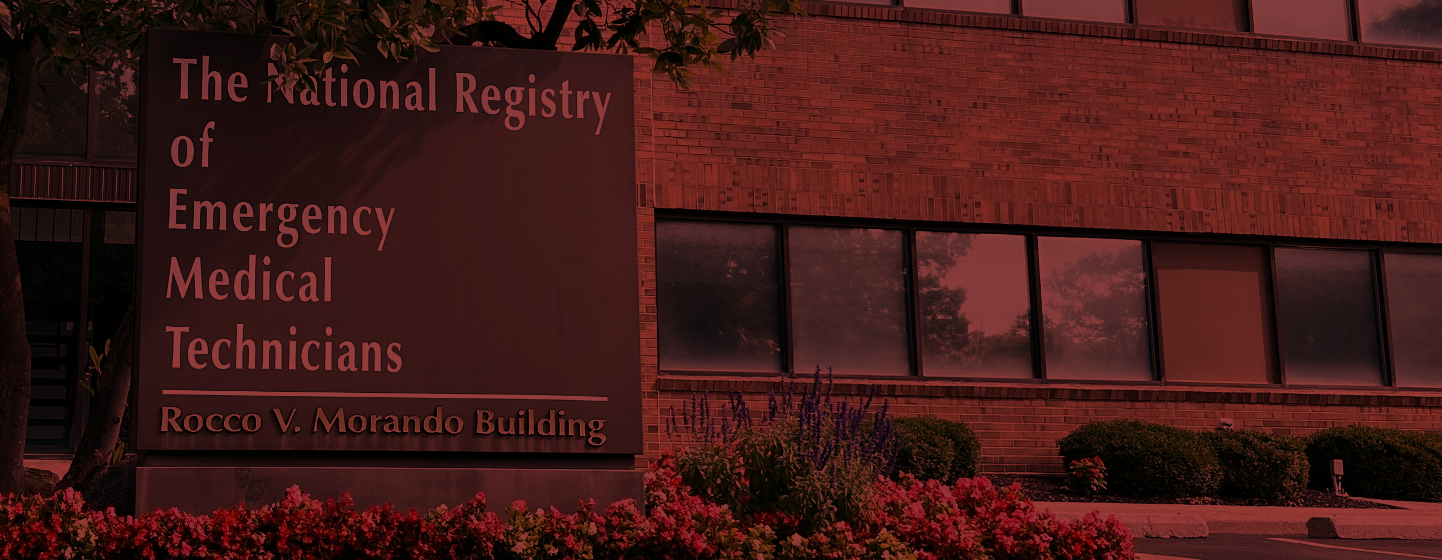 The National Registry, established in 1970 as a non-profit organization, is the Nation’s Emergency Medical Services Certification organization.
The National Registry, established in 1970 as a non-profit organization, is the Nation’s Emergency Medical Services Certification organization. | Our Purpose As the EMS certification organization, we ensure that all EMS clinicians have the knowledge and skills required for competent practice. |
|
| Our Vision A safer and healthier world where all patients receive care from certified EMS clinicians. |
|
| Our Mission To support the EMS profession through partnerships, research, and lifelong assessment of clinical competence. |
Board Of Directors
The National Registry is governed by a Board of Directors comprised of some of the most prominent figures from all segments of the EMS community and the general public. Our board members are committed to public protection and quality patient care.
Professional Accreditation
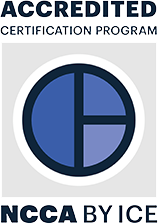 The National Registry is accredited by the National Commission for Certifying Agencies (NCCA), the accreditation body of the Institute for Credentialing Excellence. The National Registry maintains NCCA accreditation for each of our four certification programs:
The National Registry is accredited by the National Commission for Certifying Agencies (NCCA), the accreditation body of the Institute for Credentialing Excellence. The National Registry maintains NCCA accreditation for each of our four certification programs:
- Emergency Medical Responder (NREMR)
- Emergency Medical Technician (NREMT)
- Advanced Emergency Medical Technician (NRAEMT)
- Paramedic (NRP)
Credentialing:
- Protects the Public
- Assures consumers that professionals have met standards of practice
- Advances the profession
- Establishes standards of professional knowledge, skills, and practice
History Of The National Registry
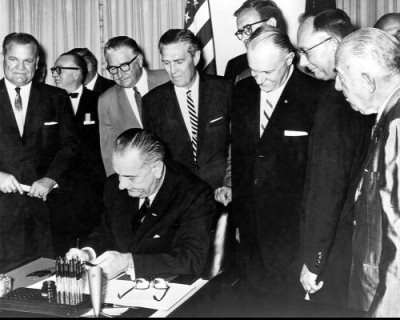
It has been nearly five decades since President Lyndon Johnson's Committee on Highway Traffic Safety recommended the creation of a national certification agency to establish uniform standards for training and examination of personnel active in the delivery of emergency ambulance service. The result of this recommendation was the creation of the National Registry in 1970. Prior to that time, a national certification standard for emergency medical care did not exist.
Since then, the National Registry has certified nearly two million EMS providers. Today, over 400,000 individuals are currently Nationally Certified at the Emergency Medical Responder (EMR), Emergency Medical Technician (EMT), Advanced-EMT (AEMT), or Paramedic level.
How States Use the National Registry
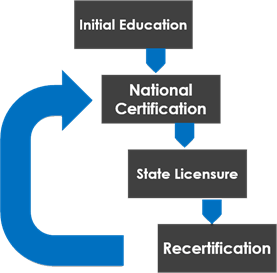
National EMS Certification is an important component of public protection. The National Registry provides National EMS Certification, which is a validated and legally defensible attestation of competency. Almost all states and territories in the United States require National Registry certification before a state license to practice is issued. The National Registry is recognized in every state in the United States, and 46 states use the National Registry certification as a basis for licensure. Learn more about the differences between certification and licensure in this article. In addition, the EMS Compact mandates that all member states require National Registry certification as a prerequisite for an EMS license. When an individual obtains a National EMS Certification, the general public, employers, and state licensing authorities know that the individual has demonstrated competency.
Exam Development
Because the top priority of the National Registry is the safety of the American public, the National Registry is continuously researching methods for the most accurate, precise and fair method of measuring a candidate's competency. Thousands of hours are devoted every year by experts from the EMS medical community on question development, validation, practice analysis, and standard setting.
The National Registry certifies four levels of Emergency Medical Services professionals: EMR, EMT, AEMT, and Paramedic as identified in the National EMS Scope of Practice Model.
National experts in EMS – including state officials, educators, employers, and EMS physicians – write exam questions (items). A single test item takes about one year to develop and pilot test. Each of the item banks contain thousands of questions. Every question is calibrated to entry-level competency for a certification level. This process ensures the certification examination is both legally defensible and psychometrically sound.
Learn more about the Cognitive Exam process.
Volunteers
The National Registry of EMT's relies heavily on input from volunteers in the EMS community to improve our products and services. Several times a year we gather a diverse group of EMS professionals from across the nation to collaborate with us in areas such as examination development, publication and software review, practice analysis and others. EMS personnel of all backgrounds and experience levels are encouraged to apply and become part of this prestigious group that is helping shape the future of the National Registry. Learn more about volunteer opportunities and the application process here.
Our Values
Accountability:
We own our actions, follow through with what we have said or committed to and realize that we are responsible for the consequences of our actions.
Collaboration:
We are committed to a sincere effort to look beyond ourselves and actively engage with others for the good of the whole.
Inclusiveness:
We strive to merge the knowledge of different disciplines, backgrounds and specialties to better represent internal and external stakeholders.
Innovation:
We are willing to accept risks and potential failures to identify novel ideas that add value and relevance while progressing our mission.
Integrity:
We do what is right in every facet, not necessarily what is convenient or popular, and hold ourselves accountable for our actions.
Transparency:
We are open and up front with our decisions, and the rationale behind them, ensuring we communicate with internal and external stakeholders the impact those decisions may have on the community.
Board of Directors
The National Registry Board of Directors is comprised of some of the nation’s most prominent experts in the medical field...
Learn more
Maps & Data
An interactive repository of National Registry data and maps...
Learn more
Annual Reports
The National Registry is a non-profit agency committed to public protection and the EMS profession. View our annual reports...

